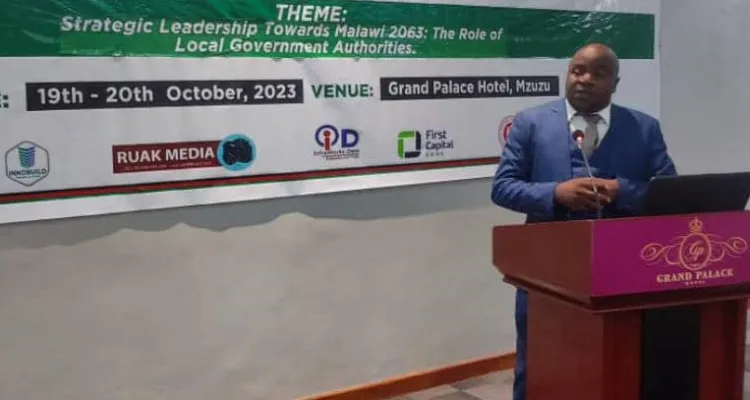
Former Surveyors Institute of Malawi (SIM) vice president Precious Chisi says implementation of secondary cities in Malawi has capacity to enhance socio-economic status of the country.
Speaking in Mzuzu during Malawi Local Government Association (MALGA) Managers network symposium and fourth annual conference, which was attended by District Commissioners and council Chief Executive Officers, Chisi said secondary cities are so important because they serve as a hub.
“Secondary cities often serve as regional hubs, offering various services and amenities. They attract businesses and industries, which reduces over reliance on primary cities and spreads economic opportunities across the nation.
“Secondary cities promote more balanced regional development by providing opportunities and services to people living in surrounding rural areas, ” he said.
Chisi added that this can reduce the rural-urban development gap adding that secondary cities can become hubs for cultural and educational activities, offering museums, universities, and cultural events that contribute to the nation’s cultural and intellectual development.
Chisi further said that secondary cities can also attract tourists and trade activities, while promoting economic growth and cultural exchange and offering alternative locations for economic activities.
He said that secondary cities help decongest the primary cities and this can reduce traffic congestion, pollution, and pressure on infrastructure in the capital city.
On urbanization, Chisi said it is an important element in in achieving Malawi agenda 2023.
“The growth of population and increasing urbanisation helps to boost economic growth by increasing demand among urban businesses and individual consumers for different products, which in turn contribute to poverty reduction in rural areas,” he said.
The land expert who is also a property valuer and surveyor said urbanization necessitates the creation of essential infrastructure like roads, transportation systems, utilities, and public services. He said these investments can benefit the entire nation.
“Cities attract a diverse and skilled workforce, leading to concertation of talent and expertise. This human capital can drive technological advancements and knowledge-based industries, benefiting the entire nation. While urban areas can have slums and poverty, they also offer opportunities for upward mobility,” he said.
Chisi said urbanization said rural-to-urban migration can reduce poverty and improve living standards.
“Urban areas typically have better access to quality education and healthcare, which can lead to improved workforce and healthier population, both of which are essential to national development,” he said.
In 2022, Malawi President Lazarus Chakwera Government through the National Planning commission (NPC) launched the Malawi Secondary Cities Plan through which eight new cities will be developed in line with the country’s Malawi 2063 national vision.
The Secondary Cities will be developed in Karonga, Nkhata bay, Kasungu, Salima/Chipoka, Mangochi/Monkey bay, Liwonde, Lucheza and Bangula. It is expected that these will help divert rural populations from migrating to the four primary cities.














